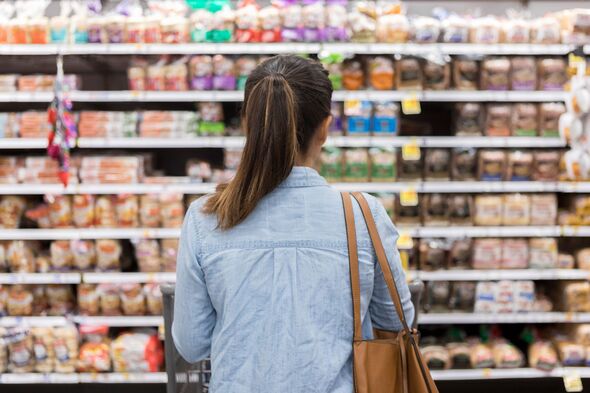
Grocery price inflation took a surprise dip in January, offering some respite to hard-pressed shoppers, according to recent data.
Market analysts Kantar reported that supermarket prices in January were still 3.3% higher than a year ago, but down from December’s 3.7% rise.
The slowdown in price rises was partly driven by increased supermarket promotions, with consumer spending on deals rising by £274m year-on-year. These promotions accounted for 27.2% of sales, the highest January level since 2021.
Shoppers also opted for non-branded products to save money, leading to record-breaking sales of own-label items, which made up 52.3% of total sales in January.
Items such as chocolate confectionery, chilled smoothies and juices, and butter and spreads saw the fastest price increases while cooking sauces, household paper products, and cat food experienced the most significant price drops.
The data showed consumers spent over 10% of their January grocery bill on fresh fruit, vegetables and salad, amounting to £1.2bn – £193m more than in December.
Protein-based products like bars, bites, and drinks contributed to a surge in sports nutrition spending, with sales in this category soaring 47% higher than last year. Over two million households purchased these items during the month.
Sales of low and no-alcohol beverages also rose by 7% compared to last January, with 6.7% of households buying at least one such drink.
Fraser McKevitt, head of retail and consumer insight at Kantar, said: “It’s no surprise to see the low and no alcohol trend make its mark in January, but given some of the generational splits we have seen in grocery, it’s interesting that older shoppers are just as likely to take these products home as younger ones.
“Not everyone signed up for dry January though, with 49% of people buying an alcoholic drink this month, but this is a pretty big drop from December’s 76%.”
Lidl has been celebrating significant growth, with a sales increase of 7.4% over the 12 weeks leading up to 26 January, marking three consecutive years of strides forward for the discounter. It now boasts a market share of 7.2%.
Aldi also experienced a boost with a 4.2% rise in sales, enhancing its market share to 10.2%.
Ocado continued to lead the pack in terms of growth rates for the ninth month in a row, witnessing an 11.3% surge in spending to secure 1.9% of the market.
Marks and Spencer, co-owner of Ocado Retail, saw remarkable performance in its groceries division. Its brick-and-mortar stores enjoyed a substantial sales increase of 10.5%.
Tesco, the UK’s largest supermarket chain, not only grew its market hold to 28.5%, up by 0.7% from last year, but it also registered its quickest uptick in sales since April 2024, at a rate of 5.6%.
Sainsbury’s surpassed general market performance with a 4.2% acceleration in sales, nudging its market share upwards from 15.7% to 15.9%, while Co-op marked its return to growth with a tidy 0.8% sales boost, claiming a 5.2% stake in the market.
Waitrose also had reasons to be cheerful with a sales jump of 3% compared to the previous January, and Iceland, the frozen food specialist, posted a positive outcome with a 1% climb in spending.
However, Asda experienced another dismal month, with sales dropping 5.2% year-on-year, albeit a slight improvement from December’s 5.8% decline.


















